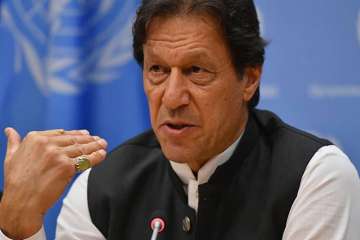Pakistan's inflation rate increased to 14.6 per cent in January from 12.6 per cent of the previous month, the highest level in 12 years, authorities said. The Pakistan Bureau of Statistics (PBS) said on Saturday that the inflation, measured by the Consumer Price Index (CPI), edged up 1.97 per cent over the previous month, reports Dawn news.
Last time, the highest inflation in the country was recorded at 17 per cent in the year 2007-08.
The data released shows that higher food prices, particularly of wheat and flour, pulses, sugar, jaggery and edible oil, have been the largest driver of overall inflation in January.
It has also been observed that the prices of essential food items, especially vegetable and fruits, were higher in rural areas than in urban areas, the PBS said.
In rural areas, the prices of LPG cylinders used for cooking purpose have also witnessed highest ever increase since 2013.
The pass-through of exchange rate depreciation and higher international commodity prices, in addition to strong underlying demand pressures, started to reflect in higher year-on-year inflation from July 2019.
Food inflation in urban areas rose by 19.5 per cent in January on a yearly basis and 2.7 per cent on a monthly basis whereas it increased by 23.8 per cent and 3.4 per cent, respectively, in rural areas.
It clearly shows that food inflation was very high in rural areas where most of the population lives, which is an unprecedented phenomenon, according to the PBS.
With the arrival of crops, especially vegetables, in Punjab, it is predicted that food prices will come down.
The prices of tomato, onion and potato and other vegetables will come down in February and March, Dawn news quoted the Bureau as saying.
The International Monetary Fund has estimated that Pakistan's inflation may rise as high as 13 per cent, but the government estimates that it will remain within the range of 11-13 per cent for the current fiscal year.
The Asian Development Bank in its outlook projected annual inflation in Pakistan at 12 per cent.
Latest World News

